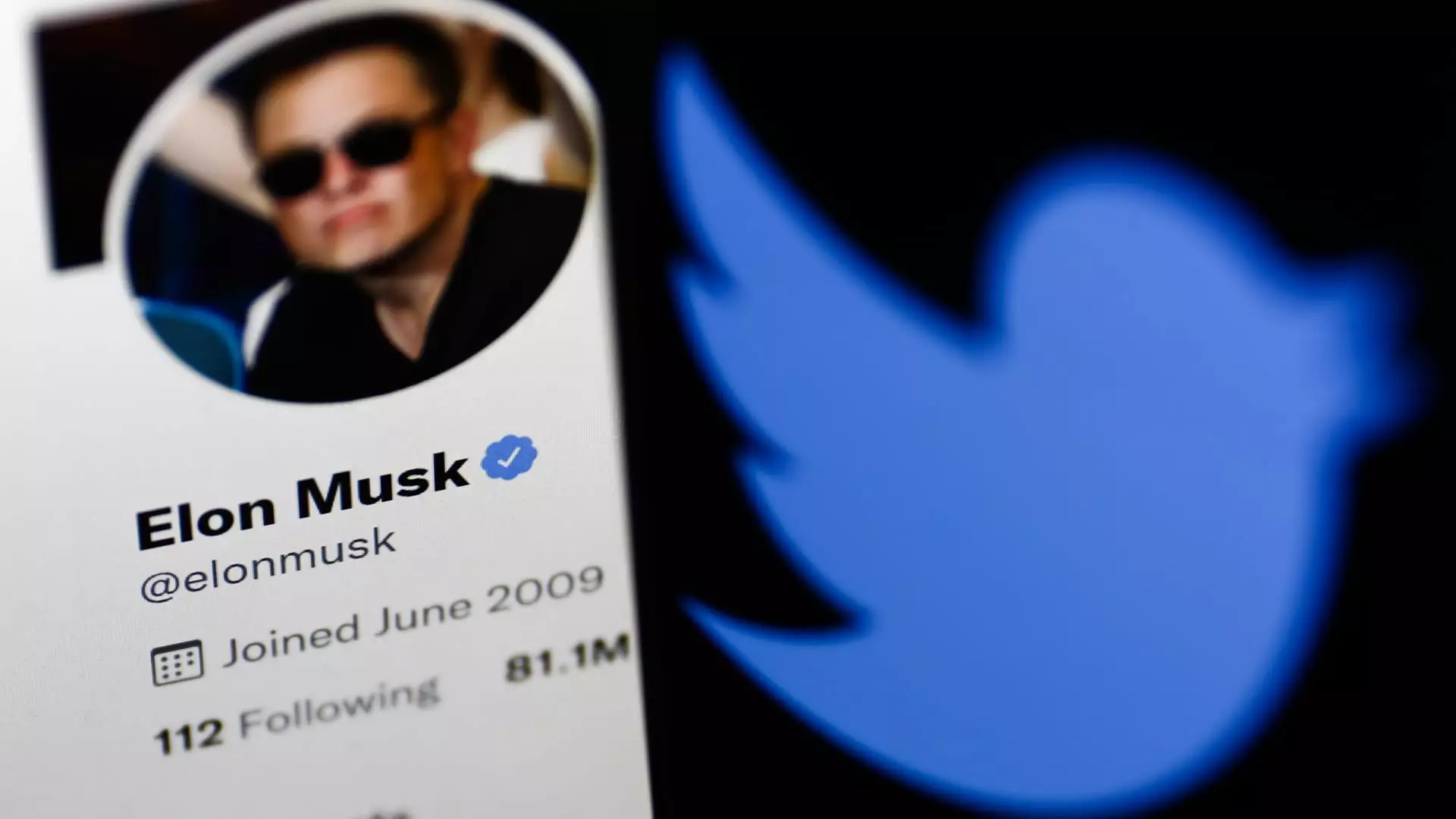In an increasingly intricate world of corporate finance, the recent developments surrounding Elon Musk’s handling of his Twitter investments could be perceived as not just a misstep, but a seismic shift signaling deeper issues within corporate governance. The proposed class-action lawsuit – Rasella v. Musk – is more than just a legal dispute; it calls into question the ethical standards of a tech mogul whose business practices often oscillate between audacious genius and reckless abandon. When wealthy individuals of Musk’s caliber operate in a realm devoid of rigorous transparency, the potential for securities fraud looms large, creating rippling effects for all market participants.
A judge in the Southern District of New York gave the green light for this lawsuit to proceed, despite Musk’s bid to have it dismissed. The implications of this support for the plaintiffs cannot be underestimated; it represents a significant challenge to a man whose investments are frequently viewed as gospel by market speculators. The core of their argument revolves around the timing of Musk’s stock purchases, which have allegedly allowed him to dodge critical disclosure requirements. This raises an uncomfortable question about whether Musk’s actions were influenced by mischief rather than mere oversight.
shareholders Left in the Lurch
The pension funds and former shareholders deem themselves victims of Musk’s strategic obfuscation, claiming they sold their shares at prices depressed due to his failure to disclose his accumulating interest in Twitter. The assertion that ordinary investors faced “artificially deflated prices” lays bare a code of conduct that not only disheartens shareholders but also highlights the ethical responsibilities of corporate leaders. The world of finance may operate on the tenets of capitalism, but such tenets should not provide a cloak for deceitfulness.
In an era where information is currency, the notion that Musk could promote a false pricing signal while building his Twitter stake undeniably undermines the market’s integrity. Shareholders should have the right to engage based on accurate and timely disclosures, and when that protocol is challenged, the very foundation of investor confidence is eroded.
Social Media Manipulation: Tweets as a Double-Edged Sword
Musk’s infamous Twitter antics could also come back to haunt him in light of Judge Andrew L. Carter’s ruling. According to the judge’s opinion, Musk’s tweet on March 26, 2022 – insinuating an interest in another social network while he had already amassed a significant stake in Twitter – serves as a misleading representation to the public. This kind of behavior is not inconsequential. In the highly volatile atmosphere of social media, a whimsical tweet can galvanize financial decisions and influence market dynamics in profound ways. It’s clear that Musk’s penchant for fly-by-the-seat-of-your-pants communications may well cross the line into manipulating stock prices.
When leaders adopt such cavalier attitudes toward shareholder responsibilities, they risk a backlash from an increasingly discerning public. The digital landscape thrives on transparency and authenticity, and when these cornerstones are threatened, the outlook isn’t good for anyone involved—especially for the shareholders left in the lurch.
The SEC’s Parallel Path
Adding to the complexity of the case is the Securities and Exchange Commission’s own actions against Musk for similar transgressions involving his handling of Twitter shares. What does this say about Musk’s oversight of his various enterprises? The convergence of these allegations paints a portrait of a man navigating multiple high-stakes ventures, yet perhaps lacking the necessary vigilance regarding compliance.
It raises the question: Is Musk too consumed with the next big thing, from Tesla’s innovations to the audacious realm of xAI, to focus on foundational responsibilities towards his shareholders? These elements coalesce to create an image of unpredictability, one that could lead to disastrous consequences not only for the investor class but for the long-term sustainability of his business endeavors.
Musk’s Multiverse of Ventures
Recently, Musk has indicated another venture, his artificial intelligence startup xAI, is merging with Twitter, valuing the AI business at $80 billion. In a broad lens, this intersection of tech ambitions could create fertile ground for innovation, but it’s also a cause for alarm when it comes to shareholder trust. With aspirations so grand, one must wonder where accountability lies—within kaleidoscopic ambitions, or does it fall victim to the weight of a towering empire?
Long-term success in corporate America usually thrives on balance: innovation must be paired with ethics. Musk’s current trajectory straddles the line between brilliance and potential disaster, navigating uncharted waters teeming with legal and ethical challenges. In this high-stakes game, one fundamental truth remains: shareholder confidence is not just a commodity; it’s a finite resource that can be depleted with alarming rapidity.


Leave a Reply